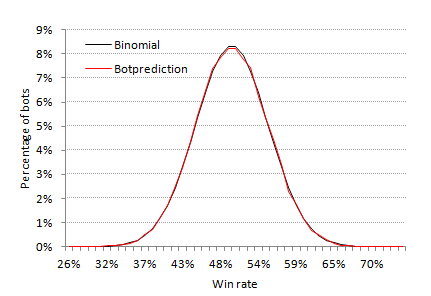Monkeys Tossing Coins
Posted 8th March 2015
Those of you who had read some of my earlier blog posts, followed me on Twitter and at the forums on VerifiedTipsters (before they censored me) and BettingAdvice, and read my last book, will be aware that I take a pretty dim view of the sports tipping world. In a nutshell I consider it to be largely like a zoo of monkeys where there are all tossing coins. Some people take offence to the comparison of homo sapiens, with its obvious superior rationalising capabilities, to its older primate ancestors. On the contrary, I have huge respect of the decision-making abilities of monkeys, from who after all, we have evolved our own. Of course, herein is the problem. Monkeys, like humans, suffer from systematic errors when faced with decision-making under uncertainty, in the shape of pattern recognition when there is no pattern there. To coin a phrase used by Nassim Taleb for the title of his book, monkeys and humans (and indeed Skinner's pigeons) are fooled by randomness.
To return to the world of sports betting, the problem here is that too many bettors believe they see patterns of profitability that have causal and predictable explanations (usually in the shape of the bettor's skill at predicting the future). Almost all of the time these patterns are just statistical illusions of chance, but because of our never-ending overconfidence about our own abilities and the failure to properly understand the laws of probability, it's a nigh-on impossible task trying to convince people that they are wrong.
Whenever I'm afforded the opportunity to try to demonstrate this shortcoming I take it. The latest opportunity presented itself in the form of a football prediction service called Botprediction.com. To quote the website, Botprediction is simultaneously running 40,000 prediction-robots (with a combined history of nearly 5 million predictions) on a daily basis. Each week it finds about 20 matches for their robots to analyze and each one of them, by using its own algorithm, chooses winners. Their top robots generate a stable and long-run 70%+ win rate, more than enough to make fair profits. The analyzing software is entirely based on mathematical algorithms and theory of probability - something many people do not take seriously enough, but which, in the long run, always prevails.
That, as they say, is the sales pitch. Here is the truth. I took the trouble to access the win rate data for all 40,000 bots, a fairly time consuming task given that the owner wouldn't provide the single database via spreadsheet. Each bot history consisted of the same 91 matches played between the 29th January to 6th March 2015 inclusive. Botprediction's "algorithms" then decided which result in the Over/Under 2.5 goals market to back for each of the bots. Average odds for these 91 games was 1.88 (according to Botprediction the long term average for its picks is 1.9 with a range of 1.7 to 2.1). From an observation of a few of the tips issued it would appear that the quoted odds represent the average market odds. The average win rate for the 40,000 bots was as near as damn it 50% (well, 49.98% to be exact). From that we can estimate that on average a bot had a loss expectancy of 6%, pretty much in line with the typical bookmaker's profit margin for over/under betting. Obviously some bots did better than average and some did worse. Below is the distribution of the performance of the 40,000 bots, together with the distribution that would be predicted from the binomial theorem for 50-50 propositions governed purely by chance (for example coin tossing).

Spot the difference. So what is it that Botprediction's algorithms are actually doing? Well, aside from perhaps a little added sophistication to take account of the slight variation in betting odds from 1.7 to 2.1 for each match, it is essentially just deciding randomly whether to back Over 2.5 goals or Under 2.5 goals. Hardly sophisticated. I can get Excel to do that with 7 characters of code. Presumably constraints to server space preclude having more bots. Of course, if it was using 291 bots (about two and half octillion of them), it could have had a bot with a 100% strike rate (and a 0% strike rate for that matter). But I suppose then, the nature of what was going on here would be more obvious.
Essentially what Botprediction has created is a huge coin tossing experiment that verifies wonderfully the binomial theorem and nothing else. I'm struggling to understand what Botprediction thinks customers will be buying here. It claims that its top bots generate stable and long run win rates that are more than enough to make fair profits. But these profits have happened through nothing more than chance. Beyond the 91 picks, the bots with 70%+ win rates are no more likely to perform better than the bots with less than 30% win rates since, being a Markov process, the next pick in any of the bots has no memory of the last pick. As such, the future performance of any bot will be completely independent of its past performance and there will be zero predictability for all of them, meaning that over the long run there is zero possibility of anyone making any money out of this (even if the odds were fair), and over the short term, any money made will happen purely by chance.
There is then just one thing left to ponder. Is Botprediction intentionally misleading customers by blinding them with impressive mathematical talk about algorithms and theory of probability, fully aware that all it is really selling is a coin tossing machine? Or is it the case that it, too, is equally blinded by all of this nonsense, seeing causal patterns where none exist? Does it actually believe that the bots with higher win rates are better than those with lower win rates and can be used to predict the future and consistently make a profit?
Of course these results do not prove that there aren't any tipsters capable of doing better than chance. The purpose is to show that when a prediction performance looks exactly like that which would happen by tossing coins, then that is exactly what it is: a random pattern with no causal basis at all. Based on my analysis and reporting of 14 years of tips verification, my personal view is now that, with few exceptions, tipsters are doing nothing more that than the statistical alchemy being performed by Botprediction. When I finally get round to properly analysing the 1 million Pyckio tips I have in my possession, I have little doubt that I will draw exactly the same conclusions. A smaller sample from its Premier League Competition from last December is a pointer to what we will see. Yes, there may well be a few genuine savants there who know how to predict the future of a sports match, but most are just monkeys tossing coins.
Update 24th March: Is Sports Betting Completely Random analsyses the Pyckio dataset.
|





